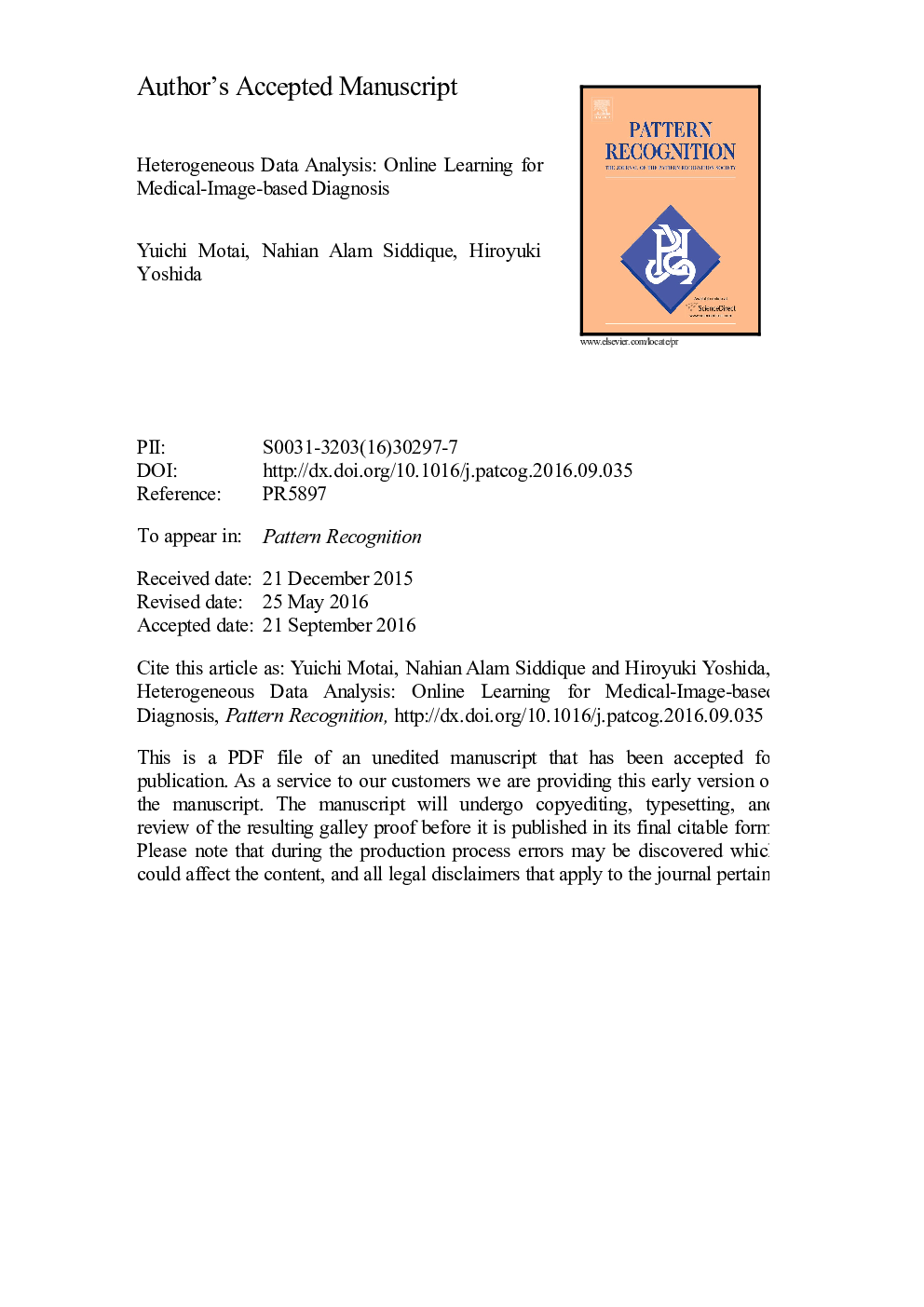| Article ID | Journal | Published Year | Pages | File Type |
|---|---|---|---|---|
| 4969848 | Pattern Recognition | 2017 | 27 Pages |
Abstract
Heterogeneous Data Analysis (HDA) is proposed to address a learning problem of medical image databases of Computed Tomographic Colonography (CTC). The databases are generated from clinical CTC images using a Computer-aided Detection (CAD) system, the goal of which is to aid radiologists' interpretation of CTC images by providing highly accurate, machine-based detection of colonic polyps. We aim to achieve a high detection accuracy in CAD in a clinically realistic context, in which additional CTC cases of new patients are added regularly to an existing database. In this context, the CAD performance can be improved by exploiting the heterogeneity information that is brought into the database through the addition of diverse and disparate patient populations. In the HDA, several quantitative criteria of data compatibility are proposed for efficient management of these online images. After an initial supervised offline learning phase, the proposed online learning method decides whether the online data are heterogeneous or homogeneous. Our previously developed Principal Composite Kernel Feature Analysis (PC-KFA) is applied to the online data, managed with HDA, for iterative construction of a linear subspace of a high-dimensional feature space by maximizing the variance of the non-linearly transformed samples. The experimental results showed that significant improvements in the data compatibility were obtained when the online PC-KFA was used, based on an accuracy measure for long-term sequential online datasets. The computational time is reduced by more than 93% in online training compared with that of offline training.
Related Topics
Physical Sciences and Engineering
Computer Science
Computer Vision and Pattern Recognition
Authors
Yuichi Motai, Nahian Alam Siddique, Hiroyuki Yoshida,
